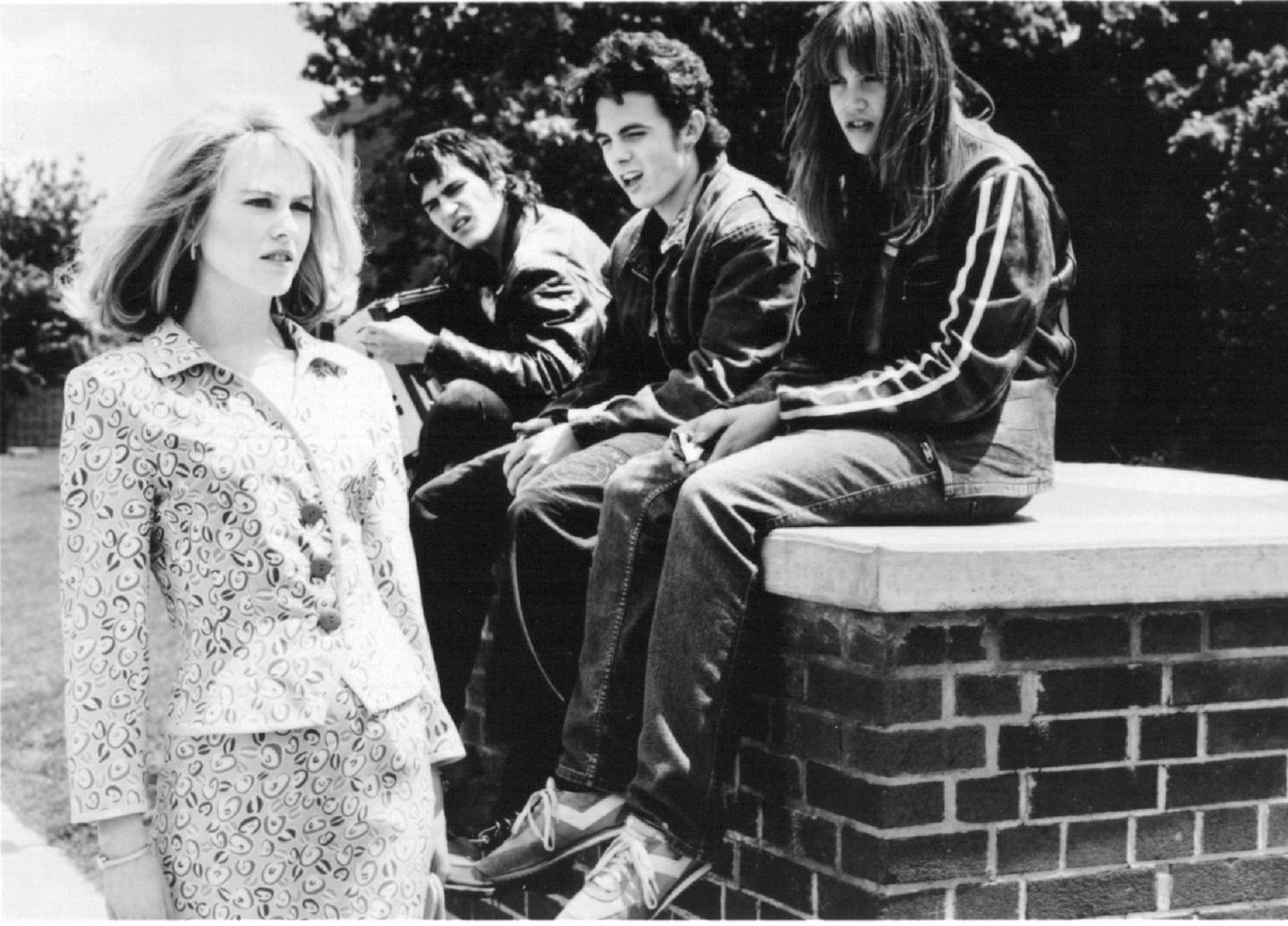A couple of weeks ago, I was watching Jessica Fletcher on "Murder, She Wrote" help a boy fix his bicycle and thought, "Son of a gun, that wooden kid is going to become the greatest actor of his generation."
The kid was Joaquin Phoenix, back in 1984 (he turns 46 this month). Like most of the kids in his family, he was a child actor (his big brother, the late River Phoenix, preceded him, and his sister Summer was in that same "Murder, She Wrote" scene), but it took quite a while for him to reveal the breadth he was capable of.
Early on, Phoenix was typecast as mumbly dopes. He played quite a few of them, including in big hits such as "Parenthood," when he was still billed as Leaf Phoenix, a pseudonym he adopted for a while. That peaked in "To Die For," a part he snatched from the fingers of Matt Damon and played so indelibly that Hollywood figured he couldn't do anything but stoned doofuses.
"Gladiator" changed that in 2001. Phoenix earned his first of four Oscar nominations by 180-ing in Ridley Scott's adventure film, playing a snarlingly cruel despot who seemed to derive sexual pleasure from torturing the title character, played by Russell Crowe. It's one of those performances, like Awkwafina in "The Farewell" or Halle Berry in "Jungle Fever," that makes you think, "Wait. They can do that?"
The reason why Phoenix has vaulted to the top of the acting game is that he keeps doing that. He has hooked up with many of our most innovative directors, both big names (Spike Jonze for "Her," M. Night Shyamalan for "The Village" and "Signs," Paul Thomas Anderson for "The Master") and names that should be big (Lynne Ramsay for "You Were Never Really Here," Mike Mills for the upcoming "C'mon, C'mon").
Phoenix works a lot, so he occasionally errs (he made "Irrational Man" with Woody Allen long after that was a questionable choice) but it's fascinating to watch him flip from micro-budget projects like Gus Van Sant's "Don't Worry, He Won't Get Far on Foot" and Jacques Audiard's innovative "The Sisters Brothers" to mainstream stuff like the John Travolta adventure "Ladder 49" or the Shyamalan movies, where be brings danger and weirdness to projects that might seem bland without his twitchy energy.
Winning an Oscar, as Phoenix did for "Joker" this year, opens up tons of possibilities for an actor. Phoenix undoubtedly has his choice of the best scripts that Hollywood — or, given his affinity for non-Hollywood directors such as Ramsay and Audiard, the world — has to offer. Besides "C'mon," he has a "Joker" sequel lined up, but I can't wait to find out what the actor who never stops surprising us does after that.
Joker (2019)
It's rare for a big-name actor to venture outside of their comfort zone, but Phoenix seems to live there. I can't think of another performer whose work I've been watching for four decades who could have produced this bold, frightening and oddly sympathetic work, seemingly out of nowhere (particularly since the movie is muddled, so he may not have gotten much help from director Todd Phillips). Phoenix is like a raw nerve ending as a damaged supervillain whose mental illness makes him uncomfortably easy to relate to.
You Were Never Really Here (2017)
This movie would have won him the Oscar if only voters had seen it (he did win the acting prize at the Cannes Film Festival). It's another tragedy, where Phoenix plays it so close to the edge that we believe his character is capable of anything. He's a violent hit man hired to find a missing, abused girl, and while his redemptive journey could come off as stale, Phoenix and Ramsay's terse drama makes it utterly believable.
We Own the Night (2007)
All four movies Phoenix has made with writer/director James Gray are dandy — I'd recommend "The Yards," "Two Lovers" and "The Immigrant," too — but this is the crowd-pleaser, a sleek mob drama in which Phoenix plays a low-level thug who becomes a cop. The movie's good-and-evil dance makes it a cousin to the films Gene Hackman did in the '70s. A lot of the oomph comes from how easy it is to believe there's a little cop in him when Phoenix is a crook and a little crook in him when he's a cop.
To Die For (1995)
The humanity in Van Sant's brittle satire about relentless pursuit of fame comes from Phoenix, as a moron-in-front/party-in-back kid who gets swept up in Nicole Kidman's ruthless rise to TV news stardom. As she wraps him around her little finger, he could come off as a joke, but instead, Phoenix makes him heartbreaking.
Her (2013)
Sure, he plays a dude who falls in love with the voice of a computer operating system, but Phoenix gives his most normcore performance in Jonze's comedy about loneliness. The situation is odd, but all Phoenix's Theo wants is to find love, and who hasn't spent too much time on a computer, interacting with a stranger? Who wouldn't be willing to do something a little unorthodox if it opened the door to happiness?
Walk the Line (2005)
Among Phoenix's many skills, one that would seem to be missing is transformation. His hair may get a little longer or his facial hair a little scragglier, but he looks pretty much the same in all of his movies. Except "Walk the Line," where he earned an Oscar nomination for convincing us he was music legend Johnny Cash, from fresh-faced newcomer to world-weary activist. Oh, and he did his own singing and guitar playing.
Signs (2002)
A case could be made that Shyamalan's grave-and-preposterous thriller is Phoenix's trickiest role. Watch how Shyamalan cuts to Phoenix's expressive face to help us figure out how we're supposed to react to the insanity. Phoenix is wryly funny as his character begins to accept the absurd truth that aliens have landed on his family's farm, but it's his sorrowful reaction to the loss of faith of his brother (Mel Gibson), a former priest, that invests us in the emotional stakes of the underrated drama.
Chris Hewitt • 612-673-4367












